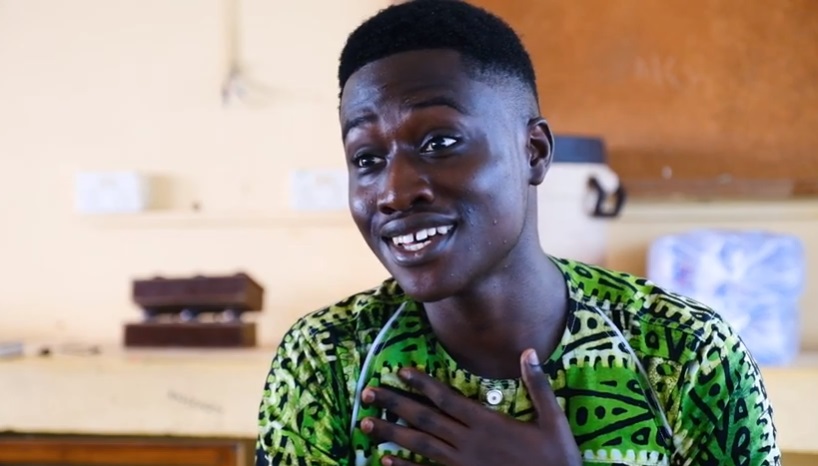We all have them. Those apps we open without thinking. Not because we need anything in particular, but because they feel… safe, in some…
Young entrepreneurs can help Africa to create jobs it needs [Opinion]

Africa’s high unemployment rate is one of the leading barriers to growth prosperity on the continent.
As dire as the current situation is, it is set to worsen with growing numbers of job seekers entering a market that already lacks employment opportunities. According to the World Bank, the youth segment accounts for 60% of total unemployment numbers in Africa.
The increasing youth population poses a serious challenge as it is projected to put additional strain on already pressurised African economies.
Especially when taking into consideration that with 200 million people between the ages of 15 and 24, Africa has the largest youth population in the world. For the most part, this is viewed as a major liability factor for the continent.
Young entrepreneurs are demonstrating that the youth population need not be a burden on African’s economic growth
However, initiatives by young African entrepreneurs are starting to paint a different, more optimistic view of what could lie ahead when it comes to the African business and employment sectors.
Young, pioneering entrepreneurs are demonstrating that the youth population need not be a burden on African’s economic growth. In fact, they indicate that the youth demographic could be the asset needed to transform the continent’s employment climate.
Entrepreneurial activities by young people in Africa not only ensure that the individuals themselves are no longer a part of joblessness statistics and are instead actively contributing to their economies, many are having even more positive impact.
Aspiring young business-starters are not only improving their communities through innovation and providing valuable (sometimes essential) services, they are also creating employment by hiring members from their immediate communities.
What is even more impressive is that trends show that young people are hiring other young people – exponentially reducing youth unemployment in their communities, countries and the continent.
Opportunity out of adversity
Ghanaian Caleb Annobil (pictured above) is a prime example of an enterprising young African rising up to addressing societal issues.
Growing up, a lack of clean water was a prevalent problem facing his community. The very real danger of the situation became fatally clear when his childhood friend lost his life to cholera.
The tragic event prompted Caleb (along with a high-school friend, Youssif) to focus on finding ways to alleviate the water crisis in the area.
This resulted in them founding a company called High School Water Product that provides sachets of clean drinking water to students and the community.
In addition to the business being socially conscious by providing vital access to clean drinking water, the startup currently employees over 250 local youth.
With an existing consumer base of over 1.5 million students, Caleb plans to expand the company with the ultimate goal of becoming the main sachet-based water dealer in Ghana while continuing to create more jobs along each step of the way.
Another young entrepreneur stepping up and being part of the solution is Benin-based Segbe Accrombessi.
The young Industrial Engineering graduate noticed a fundamental flaw in the region’s tomato production process that resulted in the total destruction of the nutritional value of the food product.
She identified alternate methods of processing tomatoes to avoid this undesirable outcome.
Wanting to develop a sustainable long-term answer to shifting the old practices, as well as incorporating her mission to aid in female empowerment, she structured a training programme for young girls and women.
The project trains young girls on improved technology methods that preserve the food product’s nutritional benefits.
The training workshops equip the local women with skills needed to work productively within the food processing industry.
Segbe’s business, Kawan Africa, currently trains around 60 women per annum, with goals to diversify and grow the programme to reach an increasing number of women over the upcoming years.
By 2024, Segbe envisions reducing losses in the tomato sector by 80%, and having a large team of young women as the driving force behind this change.
Smart ecosystem
Passionate about job creation and equality, Balbina Gulam decided to tackle these issues in her community head-on. The inspiring young Tanzanian founded Huduma Smart, a company that trains domestic workers with professional skills and provide them with operational support — substantially improve their chances of securing a job.
In addition to skills development, Huduma Smart creates an ecosystem that facilitates employment and better working conditions for young women in her community.
The business has an online platform that connects workers with job opportunities, as well as provides them with health insurance and staff contracts.
This adds structure, professionalism and basic benefits to the typically informal domestic work industry in rural Tanzania.
Balbina is dedicated to changing the domestic work sector and shift perceptions so that the jobs relating to this industry are recognised nationally and globally as viable career options that contribute to economic growth.
These are just a few examples illustrating that the African youth demographic is not necessarily an obstacle to economic growth as many forecasts warn.
Conversely, the growing trend towards entrepreneurship, combined with the practice of young business-starters employing other young people is an indicator that there is hope for employment transformation across the continent.
Coupled with innovation and ambition, these young entrepreneurs have the potential for large-scale social and economic impact that can bring Africa tremendously closer to achieving development and advancement goals.
*Josh Adler is the executive director of The Anzisha Prize.
Featured image: Anzisha Prize via YouTube
The Anzisha Prize seeks to fundamentally and significantly increase the number of job generative entrepreneurs in Africa, and is a partnership between African Leadership Academy and Mastercard Foundation. Through Ventureburn, they hope to share inspirational and relatable stories of very young (15 to 22 year old) African entrepreneurs and the people that support them. [learn more]


